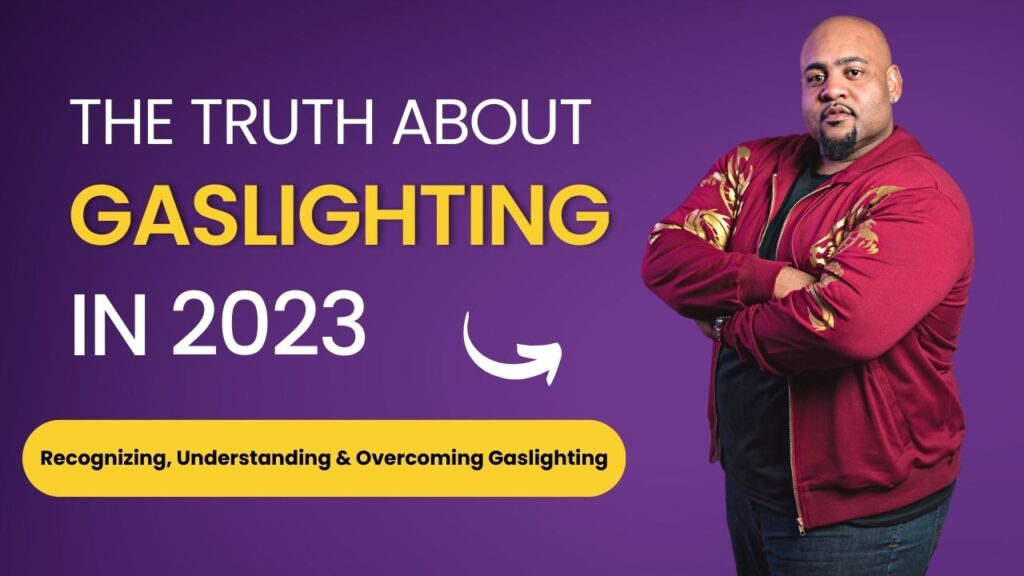
Gaslighting is a term that has gained significant attention in recent years, but its origins date back to a 1938 play called “Gas Light” and its subsequent film adaptations. This psychological manipulation tactic has been used in various forms throughout history and continues to harm individuals in personal relationships, workplaces, and society at large. In this blog, we’ll delve into the truth about gaslighting, exploring what it is, how it works, and how to recognize and combat it.
What Is Gaslighting?
Gaslighting is a form of emotional abuse and manipulation designed to make the victim doubt their own thoughts, feelings, and reality. It’s like a psychological mind game in which the gaslighter aims to gain power and control over the victim by making them question their own sanity, memories, or perceptions.
Common Gaslighting Techniques
- Denying reality: A gaslighter often denies that something happened or claims that the victim is imagining things, even when there is concrete evidence to the contrary. They might say things like, “That never happened,” or “You’re just making that up.”
- Trivializing feelings: Gaslighters undermine the victim’s emotions by downplaying their significance. For instance, they might say, “You’re overreacting” or “You’re too sensitive.”
- Shifting blame: Gaslighters frequently shift the blame for their actions onto the victim, making them feel responsible for the gaslighter’s behavior. They might say, “You made me do this” or “It’s your fault.”
- Withholding information: Gaslighters often withhold crucial information or details to keep the victim in the dark, making it difficult for them to make informed decisions.
- Projecting: Gaslighters project their own negative qualities onto the victim. For example, if they are dishonest, they may accuse the victim of lying.
Recognizing Gaslighting
Gaslighting can occur in various settings, including personal relationships, workplaces, and even in the political sphere. To recognize gaslighting, consider the following signs:
- Doubting your own judgment and memory.
- Feeling confused and anxious after interactions with a certain person.
- Frequently apologizing or second-guessing yourself.
- Isolating from friends and family because of someone’s influence.
- Experiencing a decline in self-esteem and self-confidence.
The Impact of Gaslighting
Gaslighting can have severe emotional and psychological effects on the victim. These can include:
- Anxiety and depression.
- Low self-esteem and self-worth.
- Difficulty trusting one’s own judgment.
- Social isolation.
- Emotional trauma and post-traumatic stress disorder (PTSD) in severe cases.
Overcoming Gaslighting
Recovering from gaslighting is a challenging process, but it is possible. Here are some steps to help you or someone you know overcome gaslighting:
- Recognize the manipulation: The first step is acknowledging that you are a victim of gaslighting. Trust your instincts and seek validation from trusted friends or professionals.
- Set boundaries: Establish clear boundaries with the gaslighter and communicate your expectations for respectful behavior.
- Seek support: Reach out to friends, family, or a therapist for emotional support and guidance.
- Document incidents: Keep a record of gaslighting incidents, including dates, times, and details. This can be helpful if you need evidence in the future.
- Self-care: Prioritize self-care to rebuild your self-esteem and emotional well-being. This can include exercise, meditation, and engaging in activities you enjoy.
- Consider professional help: Therapy, especially cognitive-behavioral therapy (CBT), can be effective in helping individuals recover from the emotional trauma of gaslighting.
Conclusion
Gaslighting is a harmful form of psychological manipulation that can have lasting effects on its victims. It is crucial to recognize the signs and take steps to protect yourself or support someone who may be experiencing gaslighting. By understanding the truth about gaslighting and seeking help when needed, we can break free from its grip and reclaim our mental and emotional well-being. Remember, you are not alone, and recovery is possible.

